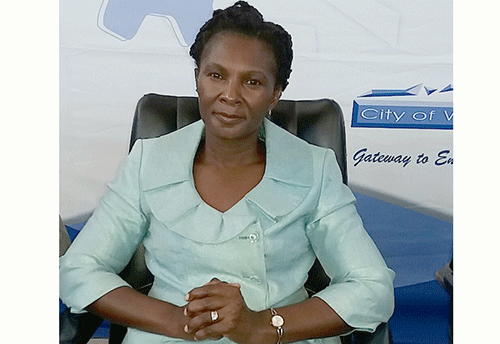Pan African Women’s Day (PAWD) is observed each year on 31 July to commemorate the First Pan African Women’s Conference, held in Dar Es Salaam, Tanzania, in 1962. The theme of the 59th anniversary of PAWD is “financial inclusion of women, challenges and opportunities”. The purpose for the celebration is to remember the contributions African women have made towards the liberation of Africa from colonialism and apartheid, and to recognise the critical role that women continue to play in the development of the continent.
The specific objective of this year’s PAWD celebration is to promote women’s economic empowerment and financial inclusion, and to raise awareness of the challenges and opportunities for African women, in particular, their recognition and participation at all levels of decision making, while continuing to celebrate their contributions and achievements to Africa’s development. Swapo Party Women’s Council, a Swapo Party’s wing, will join others to celebrate the day.
As per the African Union’s auspices, Africa is celebrating the year 2021 under the theme: “Arts, culture and heritage: levers for building the Africa we want”. The declaration of theme enables the African Union and member states, amongst others, to reflect on the role of culture in the continent’s development and position the category in its rightful place.
In March 2020, many parts of the world went into lockdown as the Covid-19 pandemic spread across the globe and continues to seriously affect African women and girls – not only economically but also through restricting their rights and physical integrity with the resurgence of violence against women and girls (VAWG).
Therefore, PAWD places emphasis on financial inclusion of women, as it helps through the provision of tools that enable financial security, increase in productivity, social stability and health. Over the long term, it can literally mean the difference between prosperity and poverty.
Women have faced extensive challenges on the continent, and Covid-19 has amplified the challenges.
Some challenges facing women include retrenchment from work and juggling between jobs; therefore, women feel more exhausted, burned out and under pressure than men – managing the household’s budget and household chores, such as working in the field, and caring for children (especially when a country is experiencing lockdown and a shut-down of schools) and relatives.
However, the pandemic has also presented opportunities, including starting women-centered partnerships, partaking in the digital economy, which has leveled the playing field, opportunity to engage in self-development courses and workshops. Cultural workers, including women, also know traditional herbs or remedies that ease pain related to various illness.
Such knowledge needs to be submitted to the Medical Board to assess its effectiveness.
During the lockdown periods, women can use the opportunities by teaching family members how to do some traditional activities that can bring money into families.
The lockdown might be used as precious family time to enable family members to collect natural resources that are readily available for domestic consumption and surplus to be sold at the right time.
As such, it is time to reflect on traditional ways how to survive without visiting shops on a daily basis as well as pass skills to others on how to carry out certain activities, which will, in turn, be useful for economic purposes.
For the realisation of the financial and economic inclusion of Namibian Women, the Government of the Republic of Namibia, non-governmental organisations and all stakeholders have to significantly improved women’s access to the financial and economic resources.
Further, organisations such as Swapo Party Women’s Council can lobby for the increase of opportunities for Namibian women and girl’s entrepreneurs and to reinforce their inclusion in the economic activities of the country.
The government has to continue by investing more on women and girls’ artists and cultural practitioners to earn income from their natural skills and promote Namibian arts, culture and heritage as a vehicle for the growth of economy.


